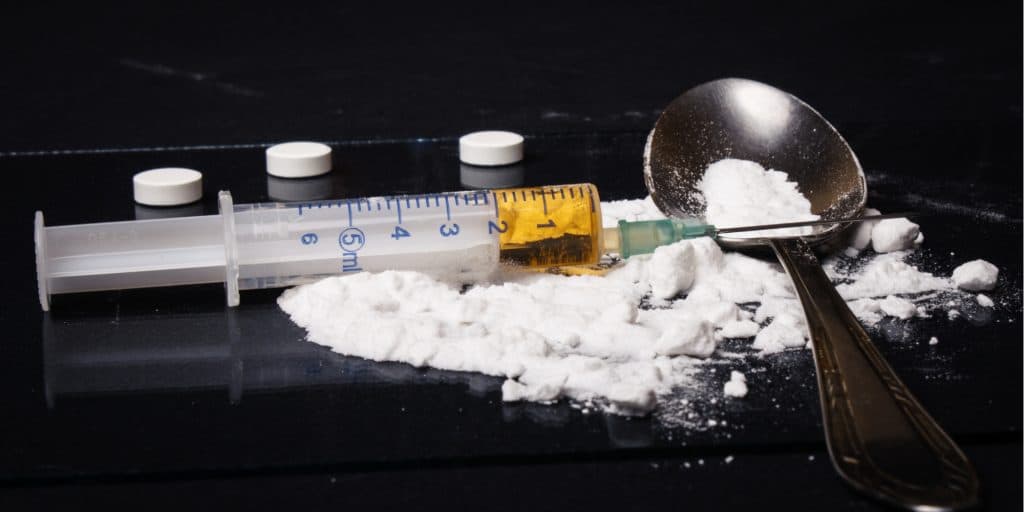
Each year, millions of Americans struggle with chronic drug abuse. Not only is this harmful to an individual’s physical and mental health, but it can lead to social, occupational, and financial problems as well. Fortunately, chronic drug abuse is highly treatable at specialized addiction treatment centers. Addiction does not have to be a lifetime problem—recovery from chronic drug abuse is possible, and the addiction specialists at The Blackberry Center can help.
Table of Contents
What Is Chronic Drug Use?

The simple definition of chronic drug use is substance use that has occurred for a long time and happens repeatedly. Chronic drug abuse is often out of your direct control and resistant to change. While the definition of chronic drug use does not necessarily imply addiction, many chronic drug users are addicted, and those who aren’t are just a short step away.
What Is Addiction?
Addiction, when associated with a recreational drug, is referred to as a substance use disorder. Substance use disorders have eleven key criteria that a mental health professional uses to deliver a diagnosis, which include:
- Using when it is hazardous to do so, such as while operating heavy machinery
- Using more drugs than you intended, or for longer than you intended
- Experiencing withdrawal symptoms if you suddenly stop using
- Tolerance, or needing to use more of the drug to achieve the desired effect
- Repeated attempts to quit or control your drug use without success
- Spending an inordinate amount of time using, recovering from, or seeking drugs
- Your drug use has begun to cause social problems
- You’ve given up on hobbies or activities you used to enjoy to use drugs
- Failing to meet responsibilities at work, school, or your family life because of drug use
- Continued use despite physical or psychological harm caused by drugs
- Craving, meaning you have repeated, intrusive thoughts about drug use
Meeting just two of these criteria indicates a substance use disorder. Agreeing with several indicates that your addiction may be especially severe, which can make drug addiction treatment even more necessary. As you can see, chronic drug abuse refers to the act of using drugs repeatedly, while substance use disorders refer to the full set of physical, social, and psychological consequences of addiction.
Chronic Drug Abuse Symptoms
Chronic drug abuse symptoms can be both physical and psychological. Many signs can be easily seen from an outside observer, but several more go on in the mind of the drug user themselves. These include:
- Sudden weight changes
- Scarring on the arms or legs from intravenous drug use
- Isolation from friends and family
- Irritability, including outbursts of anger or persistent paranoia
- Rapid behavior and mood changes
- Trouble with the law, like stealing to afford drugs or driving while high
People who’ve been misusing substances for extended periods may attempt to hide their use and deny they have a problem. They may also exhibit drug-specific symptoms, such as insomnia from repeated stimulant use or sedation from using drugs like heroin or benzodiazepines.
Risk Factors for Chronic Drug Abuse

There are several risk factors for chronic drug abuse, but three of the main drivers are genetics, stress, and mental illness. Addiction can affect anyone, but people who have these risk factors are more susceptible than others.
1. Genetics
Decades of research have shown that addiction is hereditary. This means that if your parents had a history of addiction, you are more likely to develop an addiction as a result. This extends far beyond the environment you grew up in and is seen even in identical twins who were separated at birth.
In an article from Nature, scientists estimated that genetic factors make up between 48-66% of a person’s vulnerability to alcohol addiction. Heritability for cocaine use disorders was estimated to be between 42-79%, and opioid disorders accounted for 23-54%.
But just because you have the genes for addiction does not guarantee you will become addicted. However, if you are already experiencing chronic drug abuse, the likelihood that you have a problem is exceptionally high.
2. Chronic Stress
Chronic stress and chronic drug abuse are similarly related. Stress is a bit of an umbrella term, referring to all manner of hardships that people experience. It could include physiological stress, such as food insecurity or sleep deprivation, or emotional stress, such as the loss of a loved one. Put simply, stress is the accumulation of challenges that people face on a day-to-day basis.
People who experience chronic stress are more likely to turn to chronic drug abuse. There are several reasons people turn to drugs:
- Escapism
- Trying to manage the physical signs of stress
- Turning to drugs to help them do more
Whatever your particular reasons may be, chronic drug abuse is typically a poor solution to stress. While it may have short-term benefits, the consequences of a substance use disorder ultimately add to your stress, rather than relieve it.
3. Mental Illness
Another key risk factor for chronic drug abuse is the presence of an underlying mental illness. Knowingly or unknowingly, people often use drugs to manage the symptoms of common mental health disorders, such as:
- Depression
- Anxiety
- Post-traumatic stress disorder
- Bipolar disorder
- Phobias
- Obsessive-compulsive disorder
Research from the National Institute on Drug Abuse indicates that nearly 38% of all people with a substance use disorder have a co-occurring mental illness. For people with co-occurring disorders, seeking treatment at a dual diagnosis program is the best option for achieving abstinence and working towards holistic mental health.
Treatment for Chronic Drug Abuse
Treating chronic drug abuse takes specialized care from trained addiction professionals. Most people who have developed a substance use disorder have difficulty stopping on their own. The intense withdrawal period can cause symptoms that are so uncomfortable that it leads to relapse, but these symptoms can be relieved by a medical detox.
But recovery is about more than just abstinence. At The Blackberry Center, we offer the full continuum of care for people experiencing both addiction and mental health issues, from detox to residential treatment and beyond. We use the best evidence-based practices to help people recover, including targeted therapies and medication management. To learn more about our extensive addiction treatment options, contact our team by calling 888-512-9802 or filling out our confidential online form. Anyone can recover from chronic drug abuse—and the team at The Blackberry Center can help show you the way.
The post Chronic Drug Abuse: Risk Factors, Symptoms, and Treatment appeared first on The Blackberry Center of Central Florida.
Source
Original Author: The Blackberry Center

